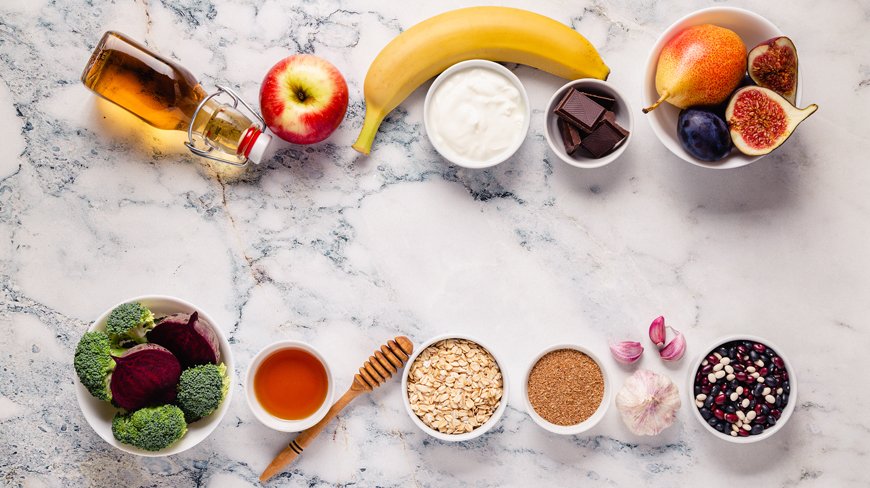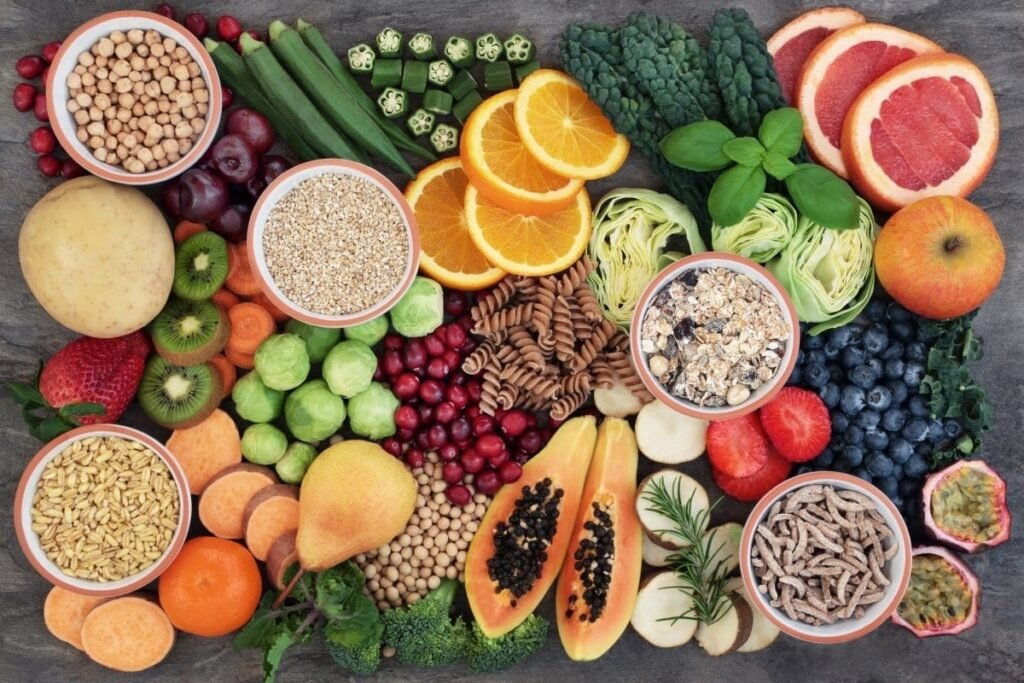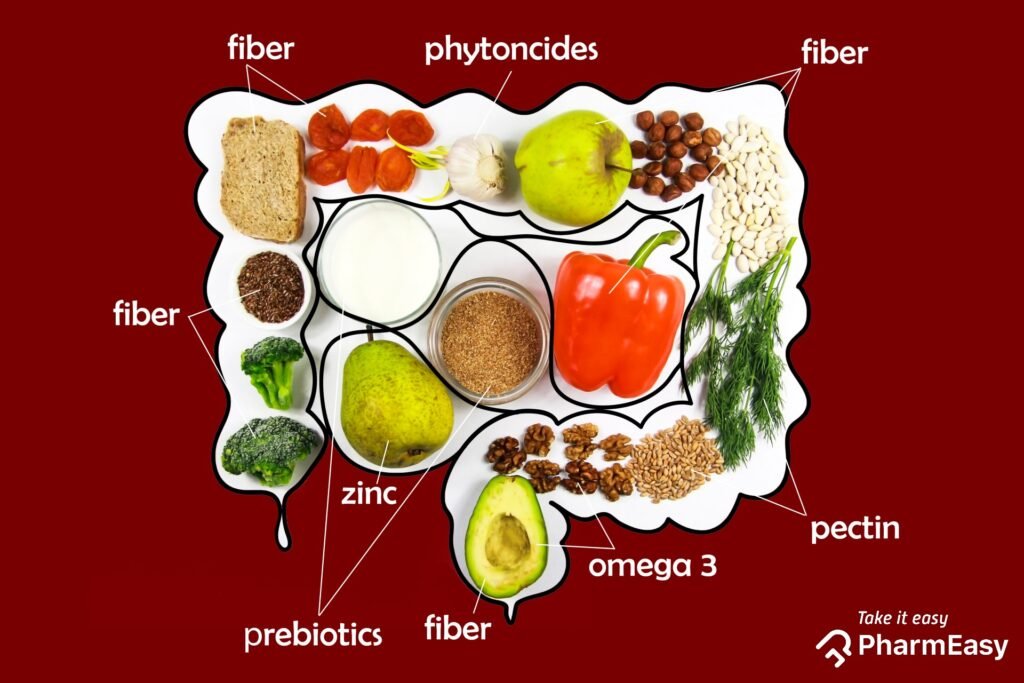Have you ever wondered if certain fruits could be detrimental to your gut health? We all know the importance of a healthy gut, but when it comes to fruits, are there any that we should be wary of? In this article, we will explore whether there are any fruits that you should avoid in order to maintain a healthy gut. So, if you’re curious about the impact of fruits on your digestive system, read on!
Introduction
Having a healthy gut is essential for overall well-being, and a balanced diet plays a crucial role in maintaining a healthy digestive system. Fruits are an integral part of a nutritious diet, providing essential vitamins, minerals, and fiber. However, not all fruits are created equal when it comes to promoting gut health. In this article, we will explore the different aspects of fruit consumption and how certain fruits may impact your gut health. By understanding which fruits to include and which to be cautious with, you can make informed decisions to support a happy digestive system.
High-Fiber Fruits
Fiber Importance
Fiber is a vital nutrient that aids in digestion and promotes bowel regularity. It adds bulk to the stool, preventing constipation and promoting healthy bowel movements. Consuming an adequate amount of fiber is essential for gut health and overall well-being.
Fruits High in Fiber
Many fruits are rich in fiber, making them excellent choices for a healthy gut. Examples of high-fiber fruits include apples, pears, raspberries, and bananas. These fruits not only provide essential nutrients but also support digestive health through their fiber content.
Fiber Impact on Gut Health
Consuming high-fiber fruits can have numerous benefits for the gut. Fiber acts as a prebiotic, providing nourishment for beneficial gut bacteria. These bacteria play a crucial role in maintaining gut health and supporting the immune system. By incorporating fiber-rich fruits into your diet, you can promote a healthy gut environment.
Recommended Daily Fiber Intake
The recommended daily fiber intake varies depending on age and gender. Generally, it is recommended that adults aim for 25-38 grams of fiber per day. By including high-fiber fruits in your diet, you can contribute to meeting this daily requirement and support your gut health.

This image is property of www.gastroconsa.com.
FODMAP Fruits
What are FODMAPs?
FODMAP stands for Fermentable Oligosaccharides, Disaccharides, Monosaccharides, and Polyols. These are types of carbohydrates that some individuals may have difficulty digesting. FODMAPs can ferment in the gut, leading to symptoms such as bloating, gas, and abdominal pain in people with irritable bowel syndrome (IBS) or other digestive disorders.
Fruits High in FODMAPs
While many fruits are considered healthy, some may contain high levels of FODMAPs, making them potentially problematic for individuals with digestive sensitivities. Examples of fruits high in FODMAPs include apples, pears, watermelon, and mangoes. These fruits may trigger symptoms in susceptible individuals and should be consumed in moderation.
Potential Gut Issues with FODMAPs
For individuals with IBS or other digestive disorders, consuming high-FODMAP fruits can lead to gut issues. The fermentation of FODMAPs in the gut can cause bloating, cramping, diarrhea, and other discomforting symptoms. It is important to be aware of your body’s response to high-FODMAP fruits and adjust your consumption accordingly.
Low-FODMAP Diet Recommendation
If you experience digestive issues related to FODMAPs, following a low-FODMAP diet under the guidance of a healthcare professional may be beneficial. This diet involves limiting or avoiding high-FODMAP foods, including certain fruits, for a period of time to alleviate symptoms. Gradually reintroducing these foods can help identify specific triggers and create a more personalized dietary plan for optimal gut health.
Citrus Fruits
Acidity and Citrus Fruits
Citrus fruits, such as oranges and lemons, are beloved for their refreshing flavors and high vitamin C content. However, their high acidity can pose challenges for individuals with sensitive stomachs or preexisting digestive conditions.
Gut Irritation
The high acidity of citrus fruits can irritate the lining of the stomach and intestines, leading to discomfort or exacerbation of existing digestive conditions like gastritis or acid reflux. If you have a history of these conditions, it is advisable to consume citrus fruits in moderation or consult with a healthcare professional for personalized recommendations.
Preexisting Digestive Conditions
Individuals with preexisting digestive conditions should take caution when consuming citrus fruits. These fruits can trigger symptoms such as heartburn, indigestion, or stomach pain. It is important to listen to your body and adjust your intake accordingly to avoid any discomfort or irritation.
Moderate Citrus Fruit Consumption
While some individuals may need to limit their citrus fruit intake, others may tolerate them well in moderation. Moderation is key when it comes to citrus fruit consumption. Enjoying a balanced variety of fruits, including citrus options, while paying attention to your body’s response, can help maintain a healthy and balanced gut.

This image is property of images.ctfassets.net.
Dried Fruits
Dryness and Fiber
Dried fruits are a convenient and portable snack option. However, the drying process removes the natural water content, resulting in a concentrated form of nutrients and sugars. While dried fruits are still a good source of fiber, they should be consumed mindfully.
Sulfur Dioxide and Preservatives
Many commercially available dried fruits are treated with sulfur dioxide or other preservatives to enhance their shelf life and appearance. Some individuals may be sensitive to these additives, experiencing digestive discomfort or allergic reactions. Opting for organic or preservative-free dried fruits can help minimize any potential adverse effects on gut health.
FODMAP Content in Dried Fruits
Certain dried fruits, such as dates or raisins, can have a higher FODMAP content compared to their fresh counterparts. This increased concentration of FODMAPs can trigger symptoms in individuals with FODMAP sensitivities. It is important to be aware of your personal tolerance and adjust your consumption accordingly.
Portion Control
Due to their concentrated nature, it is easy to consume large amounts of dried fruits, resulting in excessive sugar and calorie intake. Practicing portion control is crucial when enjoying dried fruits to maintain a balanced diet and prevent any potential negative effects on gut health.
Fruit Juice
Lack of Fiber
While fruit juice may seem like a convenient way to incorporate fruits into your diet, it lacks the fiber content found in whole fruits. Fiber is an essential component for gut health, aiding in digestion and promoting regular bowel movements. Without the fiber, fruit juice may not provide the same benefits for your digestive system.
High Sugar Content
Fruit juices often contain high amounts of natural sugars. While these sugars may come from the fruits themselves, the absence of fiber can lead to a rapid spike in blood sugar levels. Excessive sugar intake can negatively impact gut health, contributing to inflammation, imbalances in gut bacteria, and other potential issues.
Rapid Absorption of Sugars
When consumed in liquid form, sugars from fruit juice are absorbed more rapidly by the body compared to whole fruits. This rapid absorption can overload the liver and pancreas, potentially leading to insulin resistance, diabetes, or other metabolic disorders. Opting for whole fruits instead of fruit juice allows for a slower release of sugars and better control over blood sugar levels.
Whole Fruit Alternatives
To support optimal gut health, it is recommended to prioritize whole fruits over fruit juice. Whole fruits provide the much-needed fiber, slow-release sugars, and essential nutrients for a healthy digestive system. If you prefer a liquid option, consider blending whole fruits into smoothies to retain the fiber content and create a balanced beverage.

This image is property of kyolic.com.
Excessive Fruit Consumption
Fructose Overload
Fruits contain natural sugars, mainly in the form of fructose. While fructose from whole fruits is generally well-tolerated and absorbed, excessive fruit consumption can lead to fructose overload in some individuals. This overload may cause digestive discomfort and disturbances in the gut microbiota.
Diarrhea and Bloating
Consuming large quantities of fruits, especially those high in fructose, can result in diarrhea and bloating. Some individuals may have difficulty breaking down and absorbing fructose efficiently, leading to these uncomfortable symptoms. It is important to be mindful of your fruit intake and adjust it as necessary to prevent any digestive issues.
Balancing Fruit Intake
Achieving a balance between fruit consumption and overall dietary needs is crucial for gut health. While it is important to include fruits as part of a healthy diet, it is also essential to consider other food groups and nutritional requirements. Paying attention to portion sizes, variety, and your body’s response to different fruits can help strike the right balance for optimal gut health.
Fruit Variety
Including a diverse range of fruits in your diet is important to ensure a variety of nutrients and promote a healthy gut microbiome. Different fruits offer unique benefits and can support a balanced gut ecosystem. Experimenting with various fruits and incorporating seasonal options can add excitement and nourishment to your diet.
Unripe or Overripe Fruits
Lack of Nutrient Absorption
Eating unripe fruits can result in a diminished absorption of nutrients and potential challenges for digestion. Unripe fruits are often harder to digest and may contain higher amounts of tannins, which can interfere with nutrient absorption. It is advisable to allow fruits to ripen fully before consuming them to optimize nutrient availability.
Potential Digestive Discomfort
Consuming overripe fruits can lead to digestive discomfort and may even contribute to bacterial overgrowth in the gut. Overripe fruits can have a higher sugar content due to natural fermentation, which can cause bloating, gas, and loose stools in some individuals. It is best to consume fruits at the peak of ripeness to minimize any potential negative effects on gut health.
Timing and Ripeness
To support optimal digestion and gut health, it is important to pay attention to the timing and ripeness of fruits. Wait until fruits are fully ripe before consuming them to ensure easier digestion and better nutrient absorption. If you are unsure about the ripeness of a fruit, consult a guide or seek assistance from a knowledgeable source.
Fruit Storage
Proper storage of fruits can help maintain their freshness and nutritional value. Storing fruits at the appropriate temperature and humidity can prevent premature over-ripening or spoilage, ensuring optimal quality when they are consumed. Additionally, consuming freshly picked fruits or those sourced locally can contribute to better nutrient content and overall gut health.

This image is property of dropinblog.net.
Genetically Modified Fruits
Potential Impact on Gut Health
The consumption of genetically modified (GM) fruits can raise concerns regarding their potential impact on gut health. While extensive research is still needed in this area, some studies suggest that GM foods may affect gut bacteria composition and function, potentially influencing gut health. Opting for organic or non-GMO fruits may be a personal preference for individuals concerned about the potential long-term effects of GM foods.
Pesticides and Herbicides
Conventionally grown fruits may be exposed to pesticides and herbicides, which can have adverse effects on gut health. These chemicals may disrupt the gut microbiome and contribute to imbalances. Choosing organic fruits or thoroughly washing conventionally grown fruits can help minimize potential pesticide exposure.
Organic and Non-GMO Options
For individuals seeking to support their gut health through fruit consumption, opting for organic and non-GMO options may provide peace of mind. Organic fruits are grown without synthetic pesticides or genetically modified techniques, reducing the potential risk of gut-disrupting substances. Non-GMO fruits can also offer a similar assurance for those concerned about the potential impact of genetically modified organisms on their gut.
Personal Sensitivities
While genetic modification is generally considered safe, individuals with specific sensitivities to certain foods or ingredients may choose to avoid genetically modified fruits. This personal preference is based on individual needs and concerns, ensuring a more comfortable and tailored approach to gut health.
Conclusion
Fruits play a vital role in promoting gut health when consumed mindfully and in moderation. High-fiber fruits offer numerous benefits for digestion and bowel regularity. However, individuals with specific sensitivities to FODMAPs or preexisting digestive conditions may need to limit their consumption of certain fruits. Citrus fruits, dried fruits, and fruit juice should also be enjoyed in moderation, considering factors such as acidity, sugar content, and lack of fiber. Balancing fruit intake, opting for ripe fruits, and considering organic or non-GMO options can further support optimal gut health. As individuals, it is important to listen to our bodies and make informed choices regarding fruit consumption to maintain a happy and healthy gut.

This image is property of blog-images-1.pharmeasy.in.
